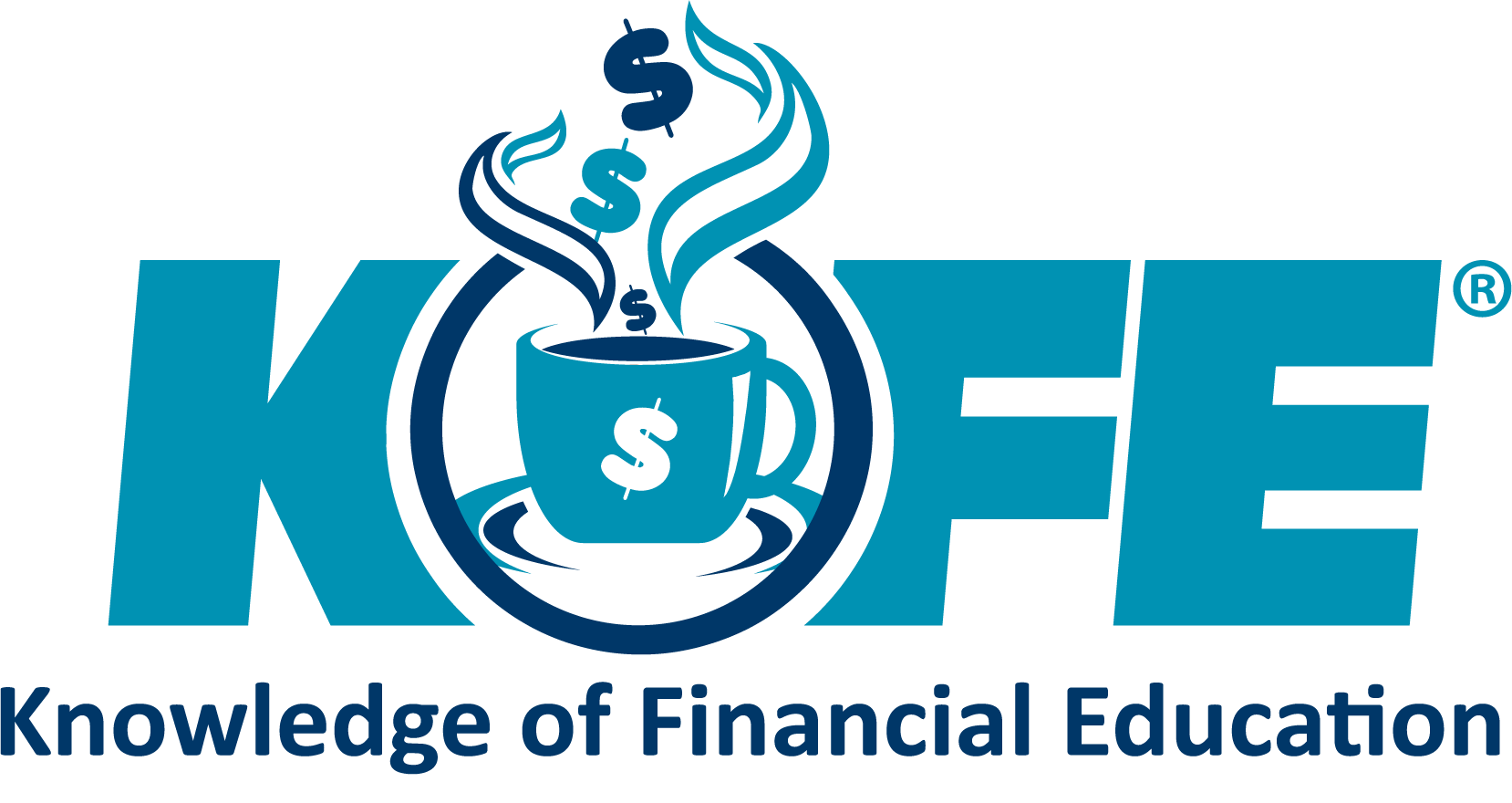Educate yourself on the world of credit.
Using credit has become widespread. People use it every day when buying homes, cars, groceries and even something as cheap as a pizza. But most people don’t understand credit use.
That’s why so many people find themselves in debt or unable to pay off a mortgage or car loan. KOFE’s advanced tools change that. These tools will educate you on the various types of credit and how you can improve your credit history, credit score and overall financial health.
KOFE Break!
Before we get started, take this quick quiz to see how much you know about credit. It will help gauge the amount of time you’ll need to take on this section.

How soon should you check your credit before a major purchase?
A) The lender should check it for you when you apply
B) At least six weeks prior
C) At least six months
D) Any purchase that requires a credit check is too expensive anyway
C) At least six months
What kind of credit card should you get with bad credit or no credit score?
A) Any, as long as you find a cosigner
B) Secured
C) Remedial
D) Probationary
B) Secured
Types of credit
There are three types of credit. Each one is different, so finding the proper type for your situation is essential.
- Open-end revolving credit (secured or unsecured)
- Open-end 30-day credit
- Closed-end credit
Open-end revolving credit
Open-end revolving credit comes in two forms:
- Unsecured Open-End Revolving Credit
You have a fixed credit limit and must pay at least the minimum amount due each month. Interest rates are usually higher, especially if you have a bad credit history. Examples include MasterCard, Visa and retail store cards. - Secured Open-End Revolving Credit
People with bad credit or no credit history use secured cards. They require you to secure purchases by keeping a certain amount of money in a special account or by making a certain deposit. If you do not pay your bills or go over your credit limit, the creditor uses the money in your account.

Open-End 30 Day Credit
Open-end 30-day credit usually comes with a high credit limit, but you must pay your outstanding account balance in-full at the end of every month. An American Express card is the most common example.
Closed-End Credit
Closed-end credit is what you get when you are approved for a mortgage, get a car loan, obtain a student loan or some similar purchase.
Improving your entire credit experience
By utilizing KOFE’s extensive library of Financial Publications, and expert Financial Education videos you’ll soon become a credit master.
You’ll learn how to:
- Use credit responsibly
- Improve your credit
- Repair and rebuild your credit
- Become a credit score master
- Understand your credit card statement

Credit reports
You are entitled to one free copy of your credit report from both national credit bureaus every year. To obtain your free report, go to www.equifax.ca and www.transunion.ca. If you need to contact one or both of the national credit bureaus, use this information:
Equifax Canada
Box 190 Jean Talon Station
Montreal, Quebec H1S 2Z2
1-800-465-7166
www.equifax.ca
TransUnion
For English Correspondence:
Attention: Consumer Relations
P.O. Box 338, LCD1
Hamilton, ON L8L 7W2
1-800-663-9980
TransUnion
For French Correspondence:
Centre de relations au consommateur
CP 1433 Succ. St-Martin
Laval, QC H7V 3P7
1-877-713-3393
www.transunion.ca
Write a letter to dispute mistakes
Want to request a credit report? Correct information on a credit report? Here are sample letters for every possibility. Simply add your own information and send it to the proper credit bureau.

